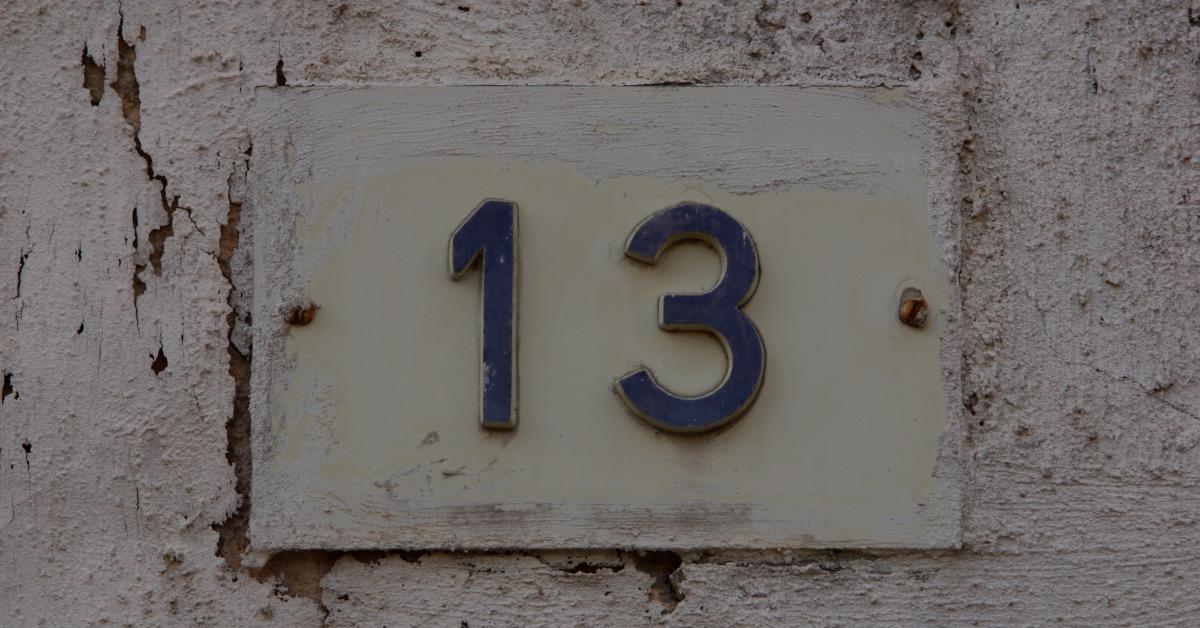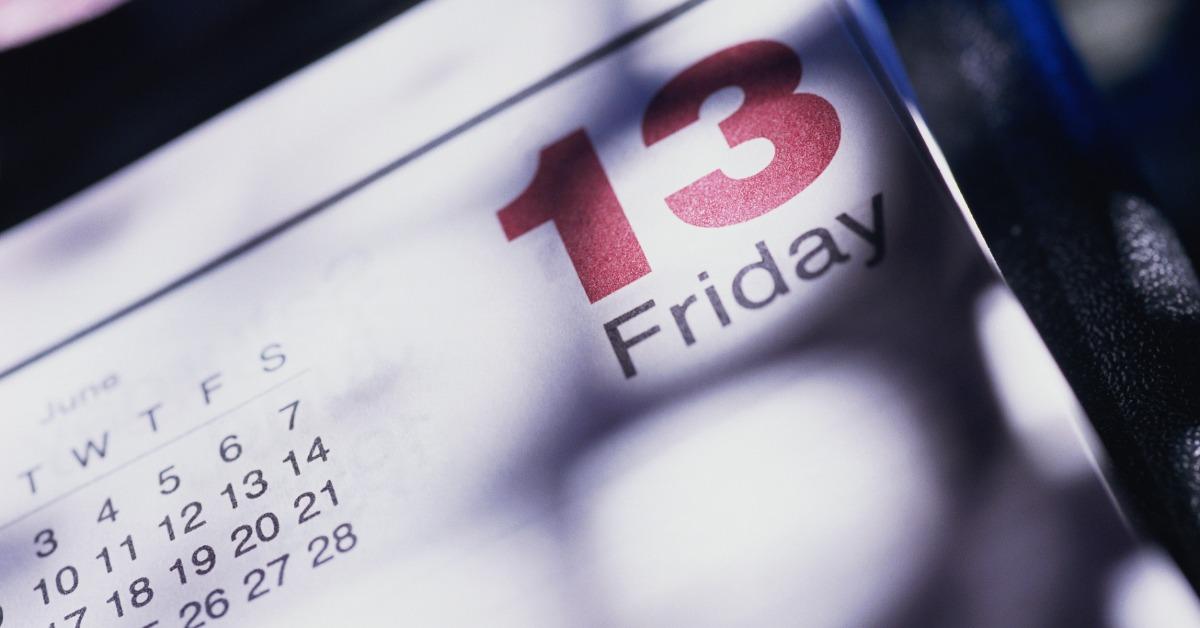People tend to associate the number 13 with bad luck. The lore surrounding Friday the 13th is no exception. But why is it considered unlucky?

The Gist:
- The number 13 has been considered unlucky for centuries.
- One of the earliest occurrences of the number 13 being avoided is in Babylon’s Code of Hammurabi.
- The number 13 just couldn’t catch a break throughout history and the notion of it being unlucky stuck with people throughout the generations.
Article continues below advertisement
Have you ever gotten into an elevator and noticed the buttons skip the 13th floor and go right to floor 14? Or have you fallen prey to the lore surrounding Friday the 13th and the supposed bad luck the day brings? That’s probably because, like so many of us, you have it ingrained in your mind that the number 13 is unlucky. But how true is that really and why do people cling to this idea?
The notion surrounding 13 being an unlucky number actually goes back centuries. Somehow, it’s one of those things that stuck with people. People in Western countries are mostly the ones still holding onto the superstition surrounding the number. In addition to Friday the 13th being considered unlucky, the number 13 alone is full of bad ju-ju.
Article continues below advertisement
Why is 13 considered an unlucky number?
According to History.com, one of the earliest occurrences of the number 13 being avoided is in Babylon’s Code of Hammurabi. It was thought to have omitted the 13th law in its list, but it was eventually discovered to be an error and not intentional.
Mathematicians and other scholars blame the unlucky superstition on the ancient Sumerians’ number system focusing on 12. This led some people to view the number following 12 — which is of course 13 — as untrustworthy.
Article continues below advertisement
In the Bible, Judas is said to be Jesus’s 13th apostle and the 13th guest to arrive at the Last Supper. And according to Norse lore, the mischievous god Loki was the 13th guest at a dinner party. His presence disrupted the balance of the 12 gods already present.
Apparently, the number 13 just never could catch a break.
Article continues below advertisement
In some places, though, like Thailand and Greece, 13 is considered to be a lucky number. The Thai calendar celebrates the new year on April 13, when it’s believed bad luck is washed away. In Greek mythology, Zeus was the 13th god. And as we all know, he was kind of a big deal.
Friday the 13th is a day associated with bad luck.
The idea of Friday the 13th being unlucky or scary is also linked to the number itself having its dark cloud hanging over it. And again, this one goes back to the Bible. Because Jesus was crucified on a Friday, some believe the lore of Friday the 13th being unlucky stems from there. And then we have the Friday the 13th movies, which haven’t helped diminish the horror around the day.
Article continues below advertisement

Whether you believe the superstition around the number 13 being unlucky or you’d walk under ladders and let black cats cross your path any day of the year, the myth surrounding it is still there.
Sometimes it’s easy to let it get to us, especially if horror movies and elevators are reminding us of the significance of the number.
But in many ways, it’s all in our heads.
Source: https://www.distractify.com/p/why-is-the-number-13-unlucky


